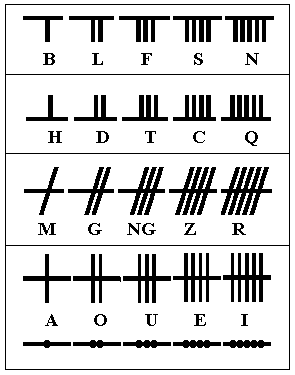
From about 11,600 years ago to about 6,000 years ago, the early human river valleys had stable rainfall that supported productive agriculture and they extended their river water-based transportations systems to sea travel, forming a Global Early Civilization during the period 11,600 to 6,000 years ago. The Global Early Civilization probably had a common world-wide language, corresponding to English as the global language of today. Like English, such a Global Early Language may not have been everybody's first language, but it probably was at least everybody's second language. After the climate dried out about 6,000 years ago, the Global Early Civilization broke up to be replaced by several isolated civilizations located in the relatively small remnants of the River Valleys that had adequate water. In areas isolated from the new dynamic regional centers, Edo Nyland has pointed out that the Global Early Language was not changed much: Tamil in Southern India; Ainu-Jomon in Japan; Ge'ez in Abyssinia; Basque in the Pyrenees between Spain and France; Olmec in Central America; and Ogam script

in Scotland, Ireland, and North America.
In the regions with new dynamic economies,
the Global Early Language broke up into regional languages.
Egyptian hieroglyphics seem to have been a fully developed
system of writing at least 5,000 years ago.
Perhaps Egyptian and Mayan hieroglyphics are regional forms
of a Global Early Language picture-writing,
and Chinese characters are a simplified abstract version
of the same Global Early Language picture-writing.
Perhaps such languages as cuneiform Sumerian and
the Sarasvati-Sindhu language of India
are less sophisticated writings used in trade and commerce,
although oral Sanskrit may have been highly developed
as far back as 8,000 to 9,000 years ago, or even earlier.
About 2,500 years ago,
another level of written languages was invented, including
Japanese, Korean, Sanskrit, Hebrew, Greek, and Latin, Toltec.
The languages of today were invented from these predecessors.
An example given by Edo Nyland
is the invention, about 1,200 years ago, of Yiddish by the Khazars
from pre-existing Hebrew and Greek,
and
the invention about 1,000 years ago of German from Yiddish
by Benedictine monks, who about the same time invented
Gaelic, English, and other languages of northwestern Europe.
A specific example of the process described by Edo Nyland
is the Yiddish word:
apikoros (skeptic, atheist), apik-iku-oroz:
apika (perhaps) ikur (sign) orozale (ambition):
Perhaps a sign of ambition.
apikoros would have been meant skeptic in Yiddish
because the Greek philosopher Epicurus was know for skepticism,
but the philosopher Epicurus would have been so named
because he was ambitious, the meaning in the Global Early Language.
Edo Nyland concludes that:
" ... none of the languages which are presently assumed
to be part of the Indo-European language "family" are genetically related
i.e. not one of them evolved slowly over time from another.
They were all invented and forced onto a reluctant public
by a determined and occasionally cruel church leadership.
If the languages are not genetically related,
the Indo-European group cannot be a family.
The Indo-European confusion started about 200 years ago
when someone discovered the relationship between
Sanskrit, Greek, Latin and Germanic.
It looked so obvious, the "perfect" relationship
between these words was there for everyone to see and, bingo!
the genetic family of Indo-European languages was born,
complete with assorted laws of phonological correspondence and
an Ur-mother language which gave birth to all.
Our academics happily climbed on the band wagon and the people followed ...
... the relationship ... is not genetic,
such as naturally derived from some imagined proto-language,
but instead they are contrived creations by highly skilled linguists
using the universal neolithic language (see Genesis 11:1).
A totally new system of organizing the world's languages is urgently needed,
as well as a different approach to the teaching of linguistics."
......